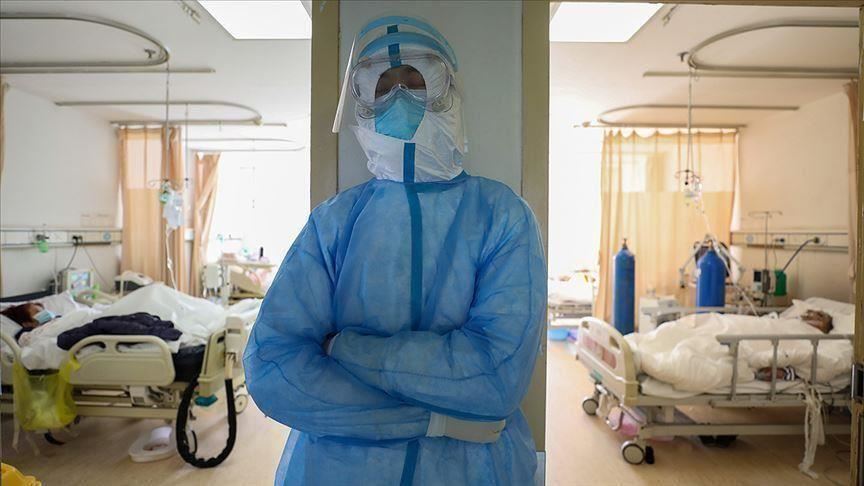Spanish hospitals strive to combat virus as cases rise
Spanish medical association publishes guidelines for whom to prioritize as cases surge past 25,000 with over 1,300 deaths

OVIEDO, Spain
Spain’s healthcare sector is being pushed to the brink as coronavirus cases and deaths continue to surge relentlessly.
As of Saturday afternoon, the Health Ministry confirmed a total of 1,326 deaths and 24,926 cases -- up significantly from 1,002 deaths and 19,980 cases confirmed Friday afternoon.
Over 1,600 people are currently in intensive care units.
The World Health Organization, which labeled the outbreak pandemic, declared Europe the new epicenter of it.
Madrid, the worst-affected area with 804 deaths, has seen its hospitals and intensive care units overflowing in recent days.
Local media, including the online journal Publico, reported that some hospitals in Madrid have already been refusing to fully treat people over 80-year-old or those older than 70 with underlying health conditions.
On Friday, Fernando Simon, director of the Center for Coordination of Health Alerts and Emergencies of the Ministry of Health of Spain, admitted that some of Spain’s hospitals were “under pressure” and “at their limits,” which has made them become “more restrictive” when it comes to admitting patients.
The Spanish government has not published protocols for doctors forcing a prioritized treatment. However, a major Spanish doctors association, Semicyuc, published a plan for doctors dealing with the crisis.
“In a situation of saturation or overflow, it is necessary to prioritize care for the cases that are potentially the most curable,” read the document.
When a hospital is saturated, it recommends using “strict criteria for admissions guided by objective frameworks, limiting, if necessary, protocols … for life support.”
The organization recommends prioritizing those with better chances of survival, a longer expected lifespan, better quality of life and those with high “social value”.
An emergency hospital with 5,000 beds is being set up in Madrid in a convention center, but one of the major problems is a shortage of material.
“We need ventilators. If we don’t get them, people in the intensive care units will have to choose who will live and who will not,” Cristina Nadal, an oncologist and the former health director of the Catalonia region, said in a video posted on social media asking for help.
She also highlighted the dwindling supply of protective materials like gloves and masks for healthcare workers and those who work in senior citizens' homes.
The virus, which emerged in Wuhan, China last December, has spread to at least 166 countries and regions around the globe, while the tally of confirmed cases topped 278,000, according to data compiled by U.S.-based Johns Hopkins University.
The global death toll has exceeded 11,000, causing a chain reaction as governments place countries on lockdown to stem the spread.
While over 89,000 have recovered worldwide, China, Italy, Iran, and Spain continue to be the most affected countries.
Despite the rising number of cases, a vast majority of those infected by the virus suffer mild symptoms and recover.
Anadolu Agency website contains only a portion of the news stories offered to subscribers in the AA News Broadcasting System (HAS), and in summarized form. Please contact us for subscription options.








